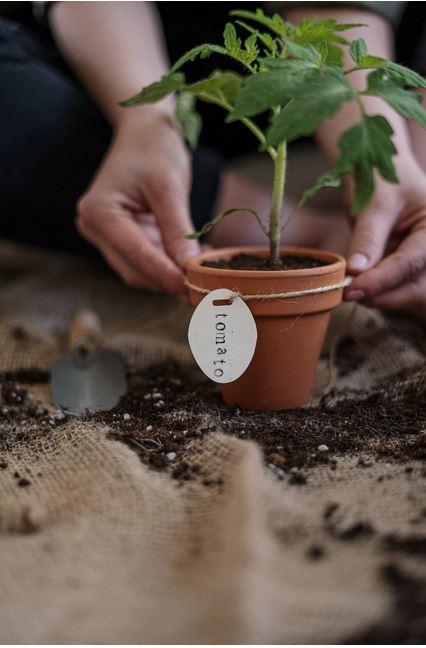November 13th, 2023Glen, about the house…

Q & As
Hey Glen, I have a batch of healthy young tomato seedlings, almost growing out of their pots. Now the weather has started to warm up, would it be safe to plant them out now? If not, then when? – David, Hepburn
Coming, as they do, from the sunny Mediterranean, young tomatoes can be damaged by chilly night air like we are getting now. Unless you have some form of protection for them until the weather turns, I would suggest you hold off for a while.
In the meantime, bring them out of doors during the sunny hours and reduce their water uptake. You should find their main stems will darken to purple. That will tell you they’re ready to take on any cold snap.
Hey Glen, I have an interesting problem with my three-year-old lemon tree. A few months ago I noticed a very healthy new growth coming from the stem just below the main stem. I wasn’t concerned until I noticed it was putting out long spikes and much larger leaves. Should I encourage this new growth, or is it going to take over? – James, Kyneton
Sorry to tell you James, but the original plant, which happens to be a wild lemon, has got bored and decided to take over control. You can fix things by simply cutting it off, right at the main stem. Clean up the wound with a sharp knife and smear it with Vaseline or some other antiseptic cream.
Pruning citrus
Spring is the prime citrus clean-up time of year, the time to remove weak and spindly growth, dead wood and, of course, invasive foreign growths.
As citrus trees grow they tend to accumulate dead, woody twigs and light growth towards their centre. By using a sharp pair of pruners and a little patience, you can open up the tree and allow plenty of sunlight in, thus preventing the build up of diseases, moulds and insect pests that normally thrive on weak, shady growth.
Do not take too much growth from the top or centre of the tree, because citrus prefer a healthy cover of leaves all over as protection from the scorching rays of the summer sun.
Help your trees to health
Healthy trees growing in their native habitat seldom suffer seriously from insect attack. The tree’s inbuilt defences and the insects’ natural enemies provide a balance. But when the trees are taken out of their natural environment, that balance is lost. Some insects, such as the gumtree scale, can multiply to the point where they can cause serious defoliation and, sometimes, kill the tree.
It becomes necessary in an artificial environment, to help nature control those insects before they reach plague proportions.
If and when insect activity is noticed on a tree or shrub, the insect should be properly identified before any control is attempted. Natural controls, such as disease and predators, may prevent serious damage. Insecticidal sprays applied wrongly or at the wrong time may do more harm to the natural control than the pests. If the insect is no longer present, sprays will be useless and other harmless, beneficial species could be needlessly killed.
The presence of some insects, such as borers, often indicates a reduction of the health and vigour of the tree. These insects enter trees dying from old age or trees damaged by humans, or natural factors such as drought, frosts, wind or intense summer heat. When the insects are finally discovered in those cases it may already be too late to save the tree.
Got a gardening query? Email glenzgarden@gmail.com









